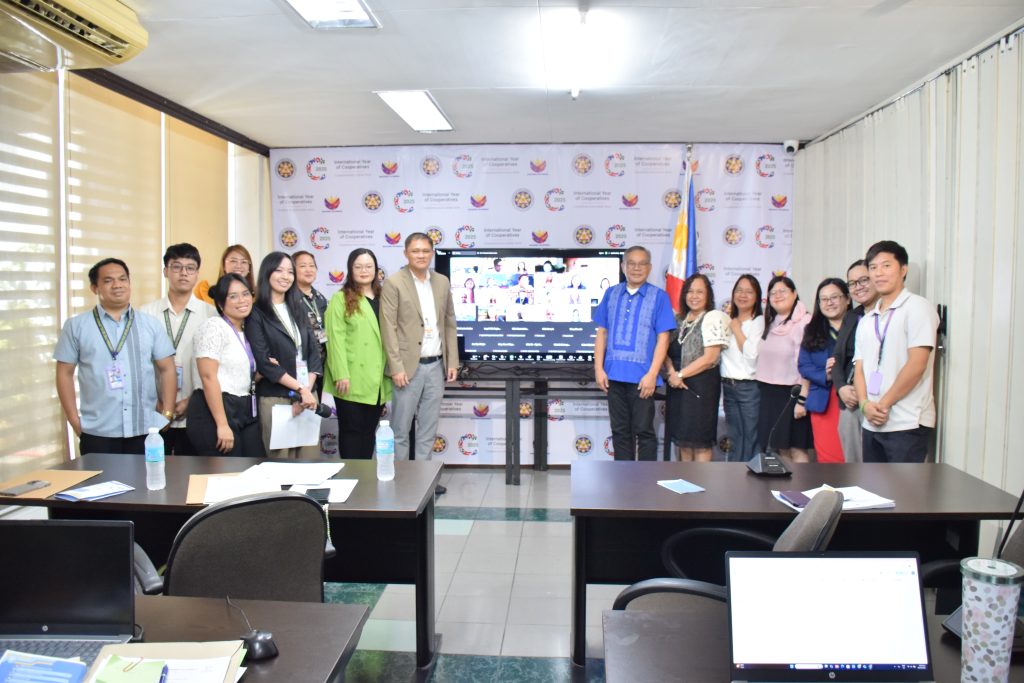
The Cooperative Development Authority (CDA), through the Legal Affairs Service, held a Conduct of Training in Legal Writing on April 28, 2025, held at the CDA Head Office, Ground Floor, Quezon City, and online via Zoom for the virtual participants from different Regional Extension Offices.
The Conduct of Training in Legal Writing aligns with the CDA’s existing strategies to develop and implement management training programs. It aims to further enhance the ability of Legal Officers to produce clear, concise, accurate, and legally sound written communications that effectively support the Authority’s functions and protect its interests.
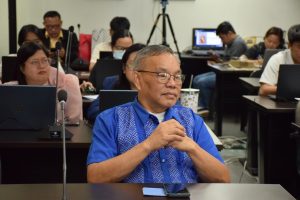
The training formally commenced with the opening remarks of the CDA Chairperson, Usec. Alexander B. Raquepo, who shared his personal reflections on his passion for writing and the importance of effective communication within the legal and public service sectors.
In his message, the Chairperson introduced the mnemonics A.L.S.O., which stands for Accuracy, Logic, Simple English or Simple Writing, and Organization. He explained that Accuracy is essential, as it involves the use of reliable information, credible sources, and fact-based content to foster trust and eliminate doubt. Logic follows, emphasizing the importance of clear and coherent reasoning, often beginning with a well-defined rationale that helps guide the reader through the argument. He then underscored the value of Simple English or Simple writing, advocating for the use of plain English to ensure that legal documents are accessible not only to legal practitioners but also to the general public. Lastly, he highlighted Organization as a critical element, referring to the need for a well-structured narrative that presents the background, development, and formulation of legal documents. These four principles, he noted, are key to producing writing that is both effective and impactful in the legal context.
He concluded by encouraging participants to actively engage in the training, stressing that learning is a vital part of professional growth and a key driver of institutional excellence. He encouraged the participants to continue learning because learning is part of our growing up, and learning ensures that our competency level in the CDA continues to rise.
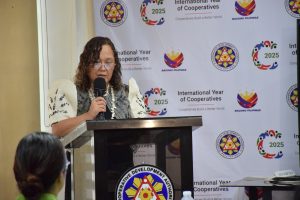
In her inspiring message, Atty. Ma. Lourdes. P. Pacao underscored the critical role of legal writing as both a professional skill and a strategic tool. She highlighted the CDA’s valued partnership with the Office of the Solicitor General (OSG), recognizing their unparalleled legal expertise as instrumental in enhancing the competency of CDA’s legal team.
To highlight the intended outcomes of the training, the Administrator introduced the acronym I.S.E.E., which represents the core competencies the program aims to develop among participants. “I” stands for Improving efficiency in legal documentation and processes, emphasizing the need for streamlined and effective workflows. “S” refers to Strengthening the ability to articulate complex legal issues effectively, which is an essential skill for both advocacy and communication. The first “E” emphasizes the importance of Enhancing the clarity and precision of legal writing to ensure that documents are not only comprehensible but also purposeful and impactful. The final “E” underscores the importance of Ensuring accuracy and legal soundness in all written communications, reaffirming legal writing as a vital instrument in defending cooperative rights and upholding institutional integrity. Atty. Pacao also reminded the participants that legal writing is a vital tool in protecting cooperative rights, asserting legal privileges, and safeguarding the integrity of the CDA.
Finally, Atty. Pacao encouraged the attendees to seize the opportunity not only to learn, but also to share insights, strengthen their skills, and reaffirm their dedication to service through excellence in legal writing.
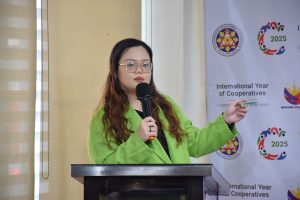
Atty. Alanna Gayle Ashley B. Khio, an Associate Solicitor from the OSG, delivered an in-depth lecture on effective legal writing. Atty. Khio emphasized that legal writing plays a critical role in sound legal analysis and its practical application across various legal documents. Drawing from her experience in government service, she shared practical tips and techniques with Legal Officers to enhance clarity, precision, and coherence in legal documents.
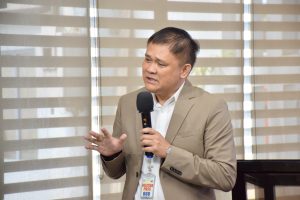
Atty. Sonny Von N. Ruaya, Assistant Solicitor General at the Office of the Solicitor General, delivered an engaging and insightful message, drawing from his extensive experience in legal practice and public service. Atty. Ruaya emphasized the critical importance of legal writing in litigation, noting that “70–80% of cases are decided based on how well pleadings are prepared.” Atty. Ruaya also said that discipline, consistency, thoroughness, and persistence are the true hallmarks of effective legal practice. According to him, “To get the desired result in litigation, one need not be a brilliant lawyer, but rather a lawyer who is willing to work hard and uphold these essential values.”
Drawing from more than two decades of experience, as well as handling cases for CDA since 2006, Atty. Ruaya shared practical insights, including specific case examples that illustrate key principles of effective legal case preparation. He expressed hope that participants would take to heart the lessons discussed and integrate them into their legal work.






